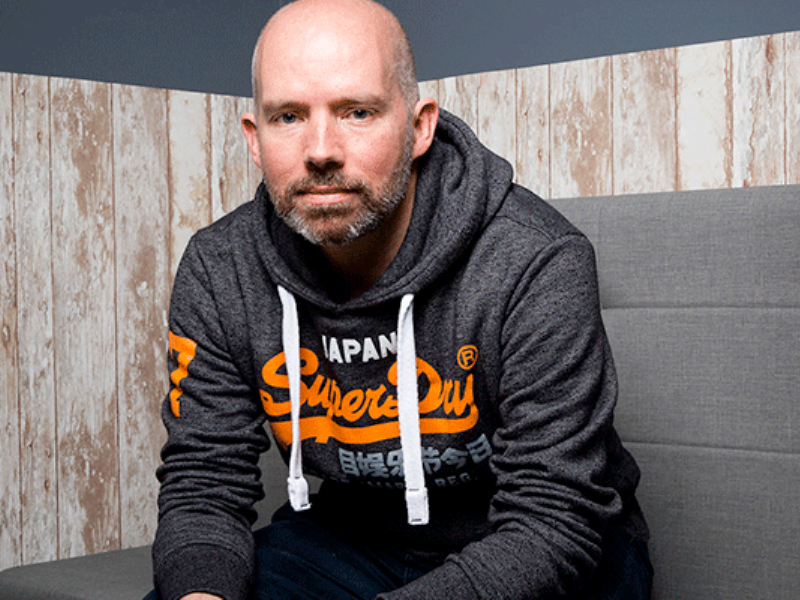The federal government’s recent cybersecurity push needs to put a greater focus on entrepreneurship and startups rather than just seeking products and servicing the bigger corporates, according to CyRise chief executive Scott Handsaker.
CyRise, one of the first cybersecurity startup accelerators in the Asia-Pacific, launched its first program last October and after a six month program is now readying its four participating startups to pitch to potential investors and customers next month.
Mr Handsaker, who is also a co-founder of Startup Victoria, said the program demonstrated the wealth of talent among Australian entrepreneurs, and that governments at all levels must provide more support to these smaller companies focused on cybersecurity solutions.

“There’s a lot of focus on corporates being right for the future cyber environment, but there’s been less attention on the early-stage entrepreneurs in cyber security – and that’s a missed opportunity. That needs to be part of the conversation,” Mr Handsaker told InnovationAus.com.
“They need to be working on also creating opportunities for early stage founders to have a crack at doing cybersecurity startups. It’s critical that remains an important part of the conversation at a state and federal level.”
This would enable the burgeoning sector to flourish, and for Australia to eventually be less reliant on overseas tech, Mr Handsaker said.
“Early stage entrepreneurship will be a core part of the economy over the next 20 to 30 years. We can’t just be buyers and acquirers of other countries’ products, we need to build them ourselves to grow the economy,” he said.
“We need to encourage policy makers to maintain a focus on early stage entrepreneurs and to not get distracted by conversations corporates want them to have. We need to make sure entrepreneurs still have a seat at the table.”
Cybersecurity entrepreneurship in Australia is only just getting off the ground, he said, and needs support to properly take off.
“I think we need to be conscious of the fact that it is day one for Australia in terms of cyber security and entrepreneurship. We’re just getting startup,” Mr Handsaker said.
“It’s a fantastic market to be in – the opportunity is enormous. It’s day on but the good thing is there are lots of people focusing on making it be successful.”
The skills gap in cybersecurity talent also needed to be quickly addressed in order for the industry to continue to grow. While universities and TAFEs have moved to improve educational offerings in cyber security with more standardised courses, corporates also needed to contribute by taking on younger talent, Mr Handsaker said.
“Corporates need to invest in people who are young and work with them on building up the skills. There are a finite number of experts, and if you’re trying to fill gaps then you need to invest in training people,” he said.
CyRise is another initiative looking to foster entrepreneurship in the cybersecurity industry, and nurture newfound talent in the sector.
The venture accelerator for cybersecurity startups, a partnership between Deakin University and Dimension Data, pocketed a $450,000 grant from the Victorian government in 2016, and officially launched its first program late last year.
The six-month program saw four startups work close with Mr Handsaker and the accelerator’s other mentors, along with corporate and educational partners.
Each participating startup received $50,000 as a capped SAFE note from CyRise as part of the program.
Early on in the program, the founders toured Israel to get a crucial insight into what a fully developed and successful cybersecurity sector looks like, Mr Handsaker said.
“Australian entrepreneurs are generally world-class and capable, but don’t always know what good looks like. They don’t know what the standard to hit is,” he said. “So we dumped them into a world-class cyber security ecosystem to show them how fast the game is there.”
“People in cyber are deeply passionate – you don’t just stumble into it over a weekend. The people care deeply about what they’re doing, but they don’t necessarily have a lot of exposure to the startup world.
“A lot of them can build anything they want, but the hardest thing about a startup is building something people care about.
“The trip was to show them that their previous standards maybe aren’t sufficient to be successful now, and that they might need to raise them.”
Of the four participating startups in CyRise’s first cohort, three were pre-product when they entered the program. Of these, two underwent major pivots in their concept, while the other stuck with the original idea.
The fourth startup, NetCrypt is readying to launch to the public this week.
All four startups will pitch as part of the CyRise demo day in Melbourne on 2 May. The event is more about presenting what the founders have achieved and exposing them to potential customers, rather than raising money, Mr Handsaker said.
“It’s a great final culmination point for them, it’s almost like their graduation. If you’re an early stage cyber security startup focused on the enterprise then early stage customers are worth more to you than investors,” he said.
Following the demo day, the cohort will then be visiting the US to meet with potential investors and customers, along with other founders, before the program concludes.
CyRise is expected to open applications for its second cohort later this year.
Do you know more? Contact James Riley via Email.

